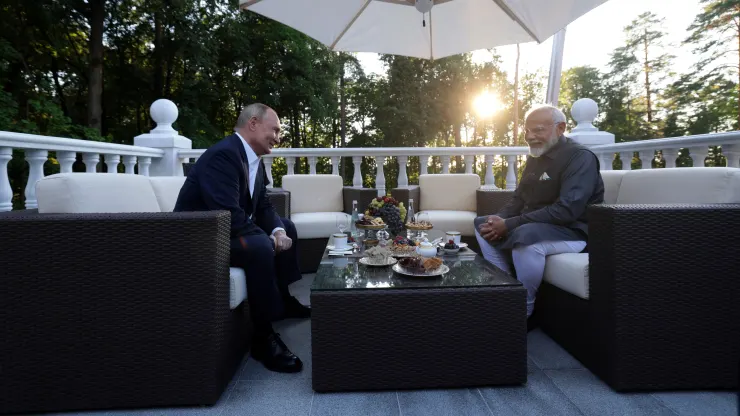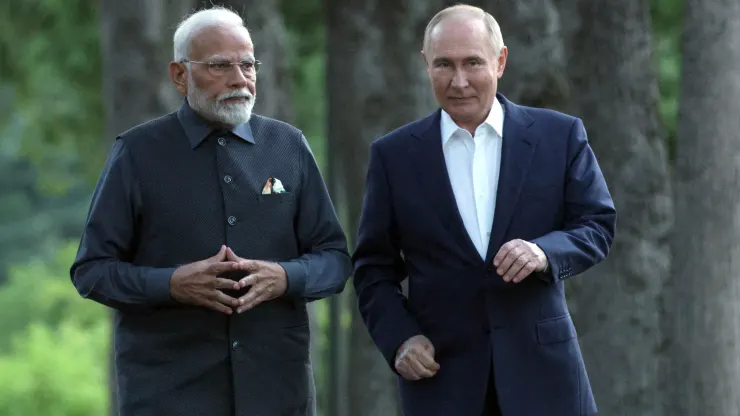By Amalia Theocharidou,
As the world is moving forward, everyone can observe a sense of multipolarity that has been conquering the international politics spectrum, in many fields. Economy, trade, geopolitics… The given multipolarity has questioned USA’s place as the first power, the “supreme leader”, as well as its position as the World’s ruler. The above mentioned statement can be obvious in the founded-in-2009 international organisation, BRICS. BRICS is consisted of Brazil, Russia, India, China, South Africa, Iran, Egypt, Ethiopia, and the United Arab Emirates, and is aiming to combine the power of these developing countries in a political and economic way, in order to make them more visible and empowering in the international agenda. This project has been going so well, that it is estimated that the power of these economies in a twenty-year span will have surpassed the big economies of the West.
Within the BRICS, that are supposedly one big, united team, one can spot easily great powers of the developing world, such as Russia and India. What is more interesting is the meeting of Indian Prime Minister Narendra Modi, and the Russian President, Vladimir Putin, the previous month. In an informal environment, the two leaders hugged and chatted over a cup of tea, exchanging pleasantries, as Putin was called Modi’s “dear friend”.

Despite many people associating the Indian Prime Minister’s visit with Ukraine and support towards Putin, Indian politicians and internationalists have claimed it to be a stabilizing meeting, as Modi has been wanting to reinforce his country’s ties with the West, and more specifically with America. With such an act, the Indian Prime Minister is assuring Putin that by no means does his turn towards the West imply a delimitation with his ties with Russia. So, overall, the meeting had more of a strategic and economic turn, with Modi making subtle comments about the conflict with Ukraine, refusing to openly reject the Russian attack in Ukraine and not participating in any United Nations resolution concerning the situation. The reason behind this gentle approach is the support Modi is hoping to get from Putin, as Russia is having a mediator’s role between the hostilities of China and India, which –let us comment– are both important members of the BRICS community. India is relying heavily on Russia for military help, as also for other important domains for the Indian economy, such as energy and trade, with the given support dating back to the Cold War. Russia still remains the number one provider of crude oil, making it impossible for India to relax its ties, as Modi has publicly thanked Putin for supporting Indian farmers and providing the said energy.
We can understand that India has been standing in the middle of the West – East cross, with ties and interests on both sides, as it proudly stands with the developing countries, but also does not wish to see the West cease, given the latest meeting of Modi with Biden regarding trade and technology. What is left to see is the upcoming reactions within the BRICS community and how India can manage this stabilizing role between these two “mortal enemies”.
References
- Why Modi and Putin Are Friends. Time. Available here
- CNBC’s Inside India newsletter: Modi in Moscow. What’s new? CNBC. Available here




